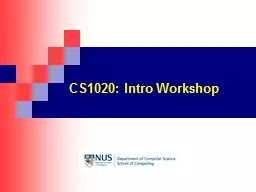PPT-Welcome to my workshop
Author : lindy-dunigan | Published Date : 2016-08-11
Growth Mindset Maths helenhindle1 Starter Activity Think Pair Share Position the green cards in the V enn diagram by deciding if they are characteristics of a
Presentation Embed Code
Download Presentation
Download Presentation The PPT/PDF document "Welcome to my workshop" is the property of its rightful owner. Permission is granted to download and print the materials on this website for personal, non-commercial use only, and to display it on your personal computer provided you do not modify the materials and that you retain all copyright notices contained in the materials. By downloading content from our website, you accept the terms of this agreement.
Welcome to my workshop: Transcript
Growth Mindset Maths helenhindle1 Starter Activity Think Pair Share Position the green cards in the V enn diagram by deciding if they are characteristics of a growth or fixed mindset Believe that talents can be developed and great abilities can be built over time. She may also be a singer writer athlete chef money manager tech whiz painter fashion stylistbut theres still so much more to her story On this Journey you will g uide the girls through the chance to imagine being an Olympic athlete a et pilot a prof Beta-Beam Costing Exercise. Elena Wildner, CERN. 25/05/11. 1. EUROnu. Costing Workshop, . CERN. 25-26 May 2011. EUROnu Costing Workshop 25-26 May 2011. First Steps to Costing, 2010. 25/05/11. 2. What was asked for. 1. Costing and Pricing Workshop. Organised by Finance and GRE for University of Greenwich staff. Costing and Pricing workshop - SPRING 2011. 2. Research Team, Greenwich Research & Enterprise. Our aim is to..... Integration of Faith and Learning. Cynthia Tweedell, Ph.D.. Vice President for Quality Enhancement and Institutional Research. Mid-Continent University. QEP Workshop, Spring, 2014. 1. Outline. . Warm up . Student Finance. UCAS Workshop 3 – Student Finance. As a result of this week’s Budget, student finance is . changing. . . HOWEVER. , the financial landscape is not as bleak as the headlines suggest.. Topics. CS1020. Intro Workshop - . 2. Login to UNIX operating system. ……………………………………. ……………………………………. ……………………………………. . Reading/English/Math. Percentages in other disciplines. "Come, Watson, come! The game is afoot. Not a word! Into your clothes and come!". BSI Workshop: Mathematics. Problem solving involving percentages. Site location. Site layout. Phase 1, 2015. workshop. machines. equipment. growing line. blasting. painting. office facilities. Phase 2, 2016. assembly workshop. high tolerance fabrication. prefabrication tanks, pipelines and vessels. What’s the purpose of this exercise?. The workshop’s . research questions. :. Who supports war in America?. How consistent is support for conflict across different types of war?. Should we be considering other, related questions? If this project were to be expanded, what could else we look at… . Workshop structureThis workshop introduces students to the traditional art of Japanese printmaking with direct reference to works in the British Museum collection.In the first part of the workshop, pu S. ome Ideas for Peer . Workshop. For . Campus, Hybrid, . and Ecampus . Classes. WIC Learning Lunch:. Friday April 25, 2014. Terminology. Workshop . ≠. Scholarly Peer Review. To help students not confuse the term . Progress in . backreaction. Syksy Räsänen. University of Helsinki. Department of Physics. . and. The Helsinki Institute of Physics. 1. IAP workshop, November 22, 2011. Looking for a factor of 2. Homogeneous and isotropic models which have ordinary matter and gravity disagree with cosmological observations by a factor of 2.. th. , 2012. Summary of Results . "Vision without Action is merely a dream. Action without Vision just passes time. Vision and Action can change the world" . Joel Barker. List of Participants. Attendees. ~eb Resourcea readwritet ink 3. WritingFix is a teacher resource website that contains lessons and ideas for any educator to freely use in their K-12 classrooms http://writingfix.com/index.htm What
Download Document
Here is the link to download the presentation.
"Welcome to my workshop"The content belongs to its owner. You may download and print it for personal use, without modification, and keep all copyright notices. By downloading, you agree to these terms.
Related Documents














